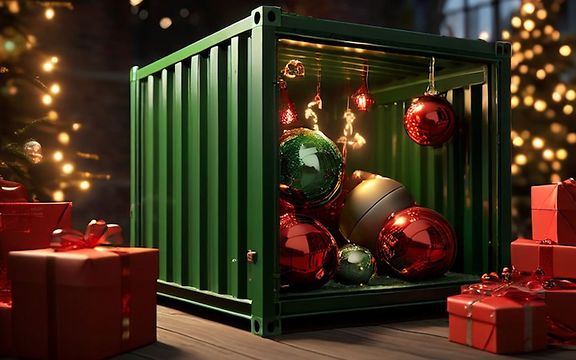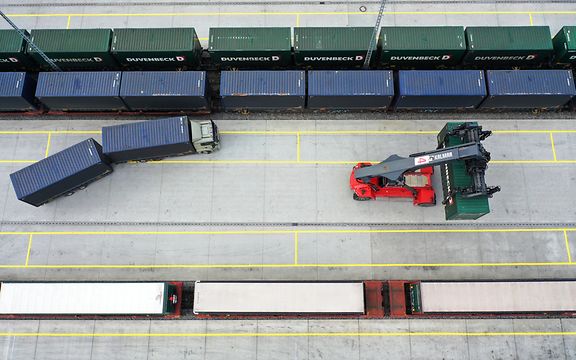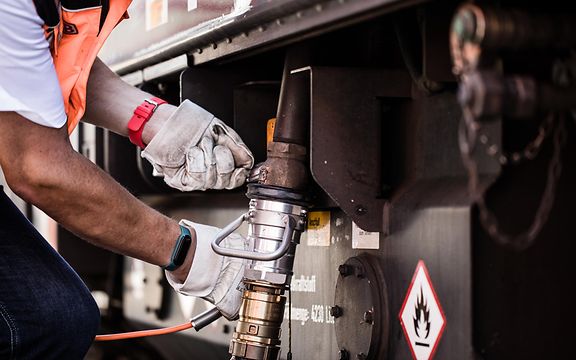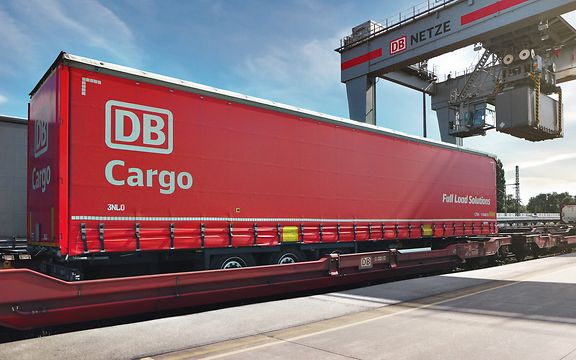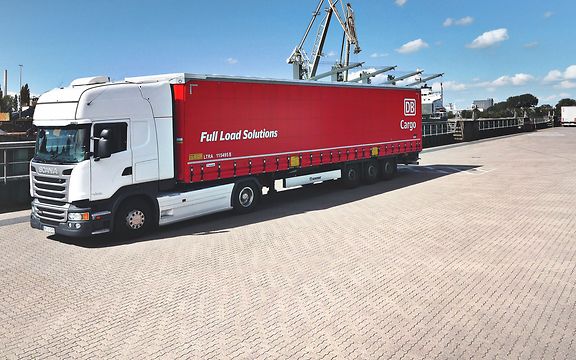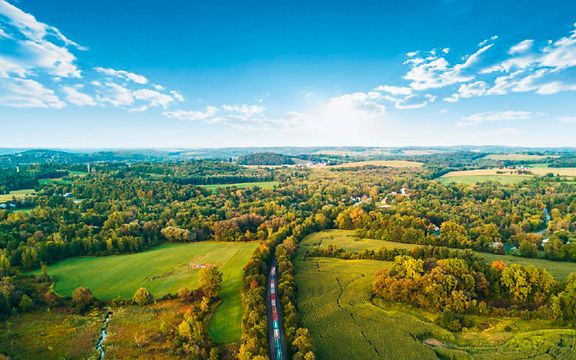Waste paper replaces empty runs: DB Cargo optimises resources
DB Cargo shows how empty runs translate into new transport services.
It all started with two different means of conveyance, each plying the Nuremberg (Bavaria) to Rudolstadt (Thuringia) route: empty freight wagons riding the rails to be loaded with paper products in Thuringia, and lorries on the roads carrying waste paper in the same direction. ROWE Recycling, a Nuremberg company, delivers waste paper by lorry to the Adolf Jass paper factory in Rudolstadt. While this is happening, incoming freight wagons needed by the Adolf Jass paper factory are unloaded at the terminal of the Johann Sperber waste disposal and paper logistics company, which is located at the bayernhafen port in Nuremberg. Hubert Müller, account manager at DB Cargo, and the waste disposal and paper logistics company Johann Sperber thought this situation held potential. So they got right to it: DB Cargo and TRANSA Spedition worked together with everyone involved to put the idea into action, moving the transport onto environmentally friendly rail.
Minimising empty runs means maximising efficiency
The days when the sliding-wall wagons unloaded at Johann Sperber's terminal used to be sent empty to the next place of loading ended as of September 2022. Instead, the Sperber company manages the tightly synchronised cross-docking procedure with special equipment. In the process, the individual wagons are directly reloaded with waste paper from the ROWE Recycling company. The paper travels by single wagonload transport to the Adolf Jass paper factory in Rudolstadt. There, the waste paper is unloaded and the wagons are reloaded in the outgoing goods department with paper rolls for various recipients. The synergy here is evident: "This new service on an empty running lane optimises our capacity utilisation and minimises empty freight runs. At the same time, we are putting fewer lorries on the roads", says Müller. TRANSA Spedition, the Adolf Jass paper factory's long-standing logistics provider, is responsible for coordination of the interface with Customer Service at DB Cargo. The synergy here is evident: "This new service on an empty running lane optimises our capacity utilisation and minimises empty freight runs. At the same time, we are putting fewer lorries on the roads", says Müller. Transa FLS, the Adolf Jass paper factory's long-standing logistics provider, is responsible for coordination of the interface with Customer Service at DB Cargo.
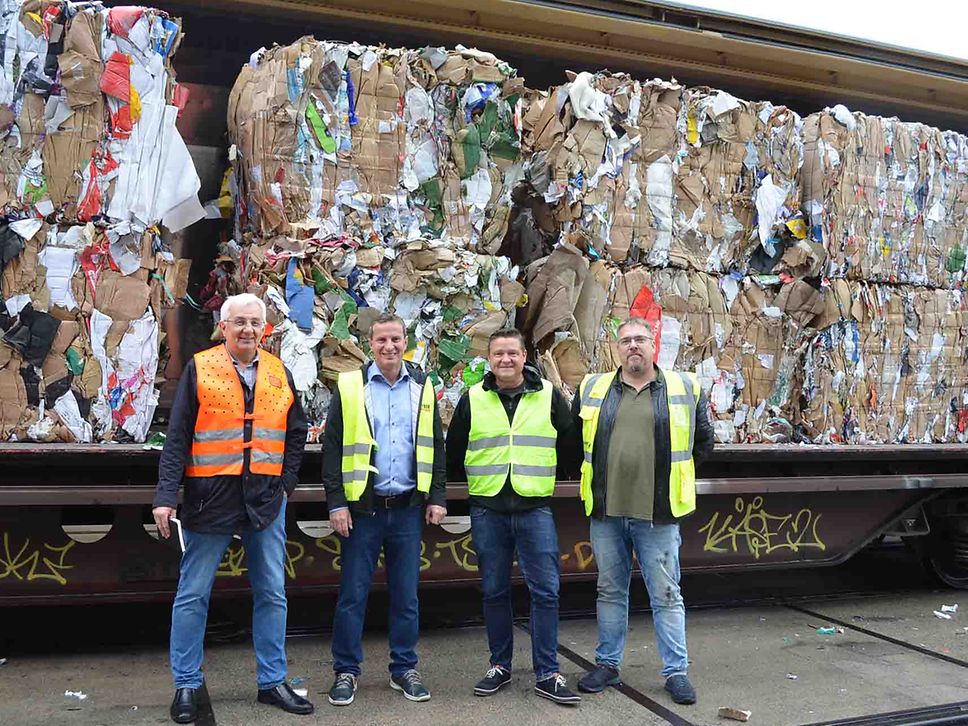
"Resource optimisation at its finest"
Currently, three wagons per week are loaded with waste paper and transported en bloc to Thuringia, meaning six fewer lorry trips every week. The volume could see a substantial rise in future. "This volume of waste paper, initially 140 tonnes per week, is optimally adapted to fit available routes and train reserves, so it imposes no additional burden to speak of," says Müller, highlighting another advantage.
Especially in this age of thinly stretched transport and energy resources coupled with a rising demand for "green logistics", reloading freight wagons to avoid empty runs is a smart solution. Or as Müller says: "Resource optimisation at its finest."
